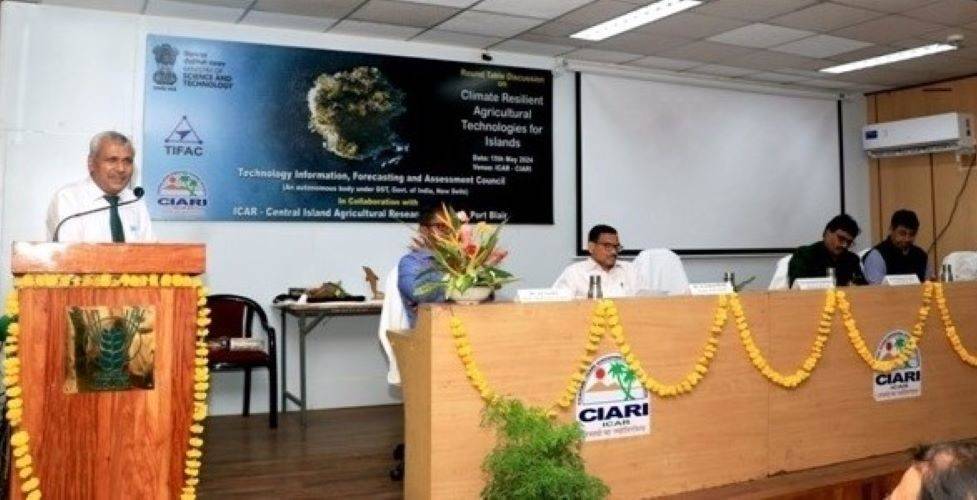ICAR-CIARI Hosts Round Table Discussion on Climate Resilient Agriculture
The ICAR-Central Island Agricultural Research Institute (CIARI) in Port Blair recently hosted a crucial round table discussion on ‘Climate Resilient Agriculture Technologies for Islands.’ This event, held in collaboration with the Technology Innovation Forecasting and Assessment Council (TIFAC) of the Department of Science and Technology (DST), New Delhi, aimed to address the challenges posed by climate change on island agriculture.
Key Speakers Emphasize Urgency and Innovation
The event saw expert speakers from various parts of the country coming together to engage in a comprehensive dialogue on advancing island agriculture amidst climate change. Prof. Pradeep Srivastava, Executive Director of TIFAC, stressed the critical nature of the meeting by highlighting the strategic goal of reducing carbon emissions by 2047. He emphasized the need for innovative and energy-efficient technologies to lower energy consumption.
Dr. Sammi Reddy, Director of the ICAR-National Institute of Abiotic Stress Management in Baramati, underscored the importance of adopting climate-resilient technologies tailored to island ecosystems. He called for meticulous planning and the implementation of contingency plans to ensure the adaptation of agricultural systems to climate variations.
Collaborative Efforts and Policy Interventions
During the discussion, Dr. Gauranga Kar, Director of the ICAR-Central Research Institute for Jute and Allied Fibers in Barrackpore, highlighted the necessity of collaborative efforts among stakeholders to address future climate change challenges. Dr. Eaknath B. Chakurkar, Director of ICAR-CIARI, reiterated the institute’s commitment to addressing the unique challenges of island ecosystems through the development of climate-resilient crop varieties, advanced technologies, and policy interventions.
Exploring Key Topics in Agriculture
The round table discussion featured keynote addresses on various critical topics, including the adoption of Climate Smart Agriculture Technologies, abiotic stress management, the integration of renewable energy sources in agriculture, and specific climate-resilient technologies tailored for islands.
Overall, the event at ICAR-CIARI provided a platform for experts to exchange ideas, strategies, and best practices in combating climate change impacts on island agriculture.
For more information on the ICAR-CIARI and its initiatives, visit their official website here.

